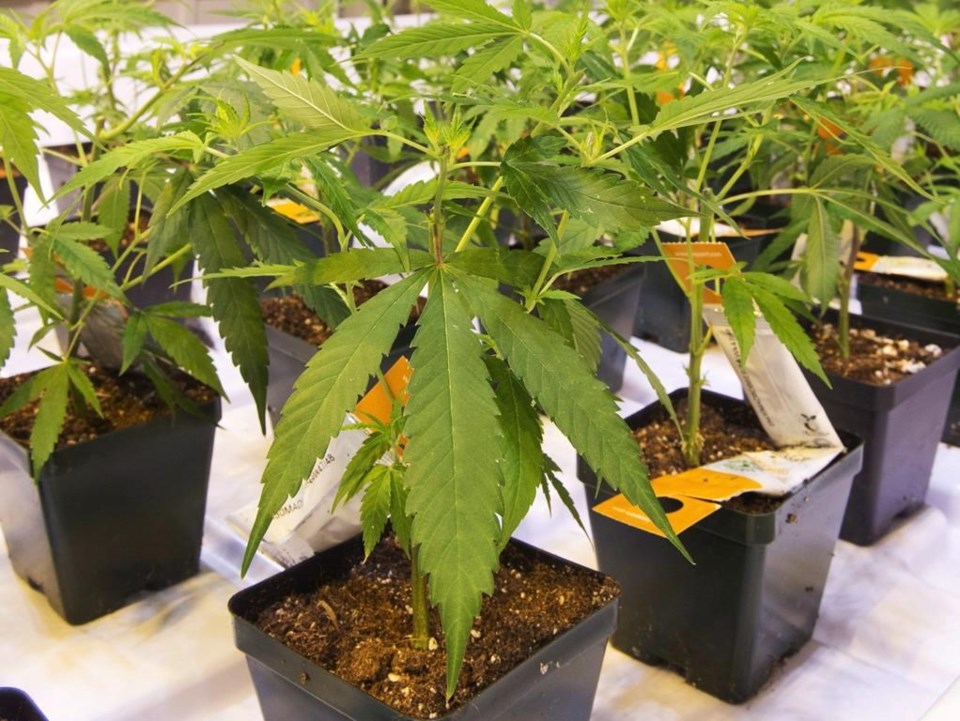Aurora Cannabis Inc. says it could take a revenue hit of up to $3 million because of a cyberattack that downed Ontario's pot distributor and a strike that halted deliveries to B.C. marijuana stores.
Glen Ibbott, the Edmonton-based cannabis company's chief financial officer, offered the estimate on a Tuesday earnings call, where he said he expects both disruptions to figure into Aurora's next quarter results but not push back profitability targets.
The Ontario cyberattack occurred on Aug. 5 and targeted Domain Logistics, the company behind the Ontario Cannabis Store's third-party distribution centre. While the attack was being investigated the pot distributor ceased shipping product to Ontario's 1,300 shops and with no other place to source stock, many stores faced dwindling supplies.
Ramifications of the attack lasted for about two weeks, said Aurora chief executive Miguel Martin, on the same call as Ibbott.
"They did an unbelievable job to get things back and running," he added.
But he labelled the B.C. interruption "significant."
The troubles in the western province began on Aug. 15, when the British Columbia General Employees’ Union, which represents about 33,000 public-service workers in the province, set up picket lines to fight for better wages.
Retail liquor and cannabis stores were not part of the job action, but the cannabis division of the Burnaby customer care centre was and so orders stopped going out.
The province was in the process of launching a program where pot stores could directly source stock from licensed producers, but the program had not begun, so like in Ontario, there were no other options to get supplies. Many stores had to close and layoff staff as supply dwindled and the strike continued.
Though both disruptions could affect Aurora's earnings, the company is facing even bigger challenges in a 30-year high inflation rate and an illicit market that has barely been diminished by the legalization of cannabis.
Aurora will lean on international medical cannabis markets in Europe, Australia and Israel for "insulation" from the current economic climate, Martin said.
"We believe the cannabis growth story will centre on international medical and recreational over the next several years," he said.
"Right now, we believe there are about 150,000 patients in Europe alone, and if the countries that have so far legalized medical cannabis were to reach similar adoption levels to Canada — one per cent of the adult population — the patient pool could expand to 3.5 million people."
Martin's remarks came as Aurora's net loss widened to $618.8 million in its most recent quarter as it recorded $505.1 million in impairment charges.
The fourth quarter net loss was even deeper than the $134 million net loss it saw in the same period last year. The company attributed the impairment charges to "changes in cannabis market conditions, and in the current capital market environment including higher rates of borrowing and lower foreign exchange rates."
Its net revenue for the quarter ended June 30 amounted to $50.2 million, down eight per cent from $54.8 million in the fourth quarter of 2021.
Consumer cannabis took the biggest hit of all its revenue streams, falling 35 per cent year-over-year.
However, Aurora's medical cannabis net revenue edged up four per cent year over year and the number of kilograms of pot it sold across all categories increased 16 per cent in the same time period.
Aurora's results follow several quarters of major changes, including facility closures, layoffs and acquisitions, that the company hopes will help it realign its operations to meet current demands.
"We've made incredible strategic progress during the year," Martin said.
"We are on track with our transformation plan and we feel very optimistic about the future of the business."
This report by The Canadian Press was first published Sept. 20, 2022.
Companies in this story: (TSX:ACB)
Tara Deschamps, The Canadian Press




